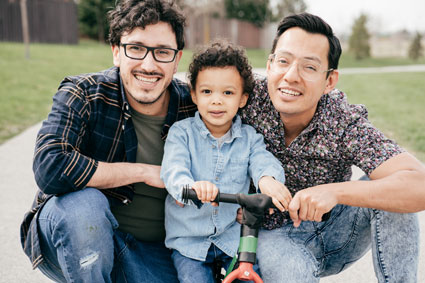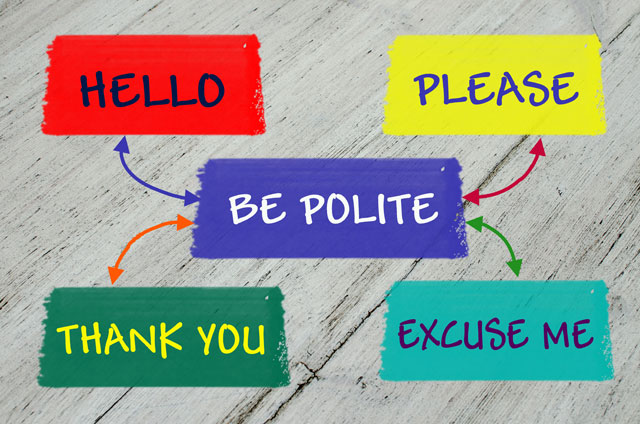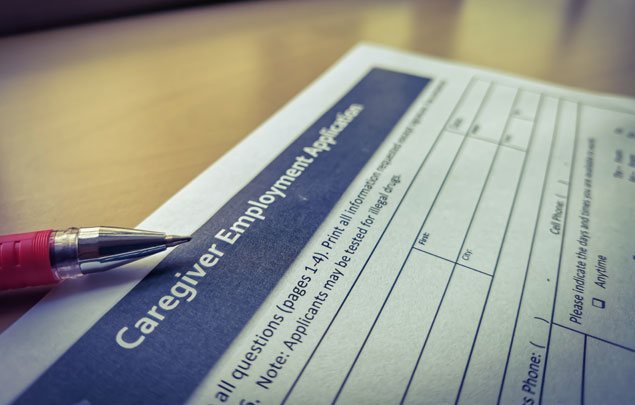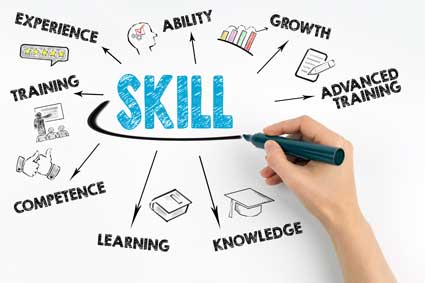Parents, and other adults, do a lot of talking to the children in their lives. This is normal and most of it is probably necessary. But there is also a time when these adults should be spending more time listening to the children, rather than always talking. Just because their voices are small, doesn't mean they shouldn't be heard at all.
Quite to the contrary, we should be listening to children. Sure, they shouldn't be making board room decisions and such, but that's not what is in question here. What we are referring to is when adults give kids the chance to express their feelings, ideas, and to be heard on whatever it is that they want to speak their piece about.
Why Listening is Important
There are many reasons why it is important for adults to be good listeners to everyone, including to children. The most important is that when you listen to a child, it makes them feel important. If they want to share an opinion and they are told to keep quiet, or they are ignored, they begin to feel as though their feelings and opinions don't matter. This will have a negative impact on their self-esteem. But when children are allowed to effectively express themselves, they feel more worthy, and that they matter. This is going to have a positive impact on their self-esteem.
Additional reasons that adults should be active listeners to children include:
-
To better understand how the child feels, and what is going on in a situation.
-
To build a better, stronger relationship with children.
-
To foster a relationship that is built on respect. When adults listen to children, they are teaching them about respecting others and the importance of being a good listener.
-
To show children that you are interested in what they have to say.
-
To make them feel valued and build their confidence.
Although mainly females are impacted by body image issues, males are effected as well. Each year there are males from middle school through high school that use anabolic steroids in an effort to get bigger muscles and improve their body image. This abuse is more common among those who play sports or engage in body-building activities. Steroid use can have some damaging health consequences, including balding, reduced sperm count, infertility, breast development, and an increase in prostate cancer risks.
First of all, let's say what active listening is not. It is not multitasking on the Smartphone while trying to hear a child talk. It's also not butting in every couple of minutes, thus preventing the child from actually getting to express themselves. In today's world it is easy to see parents on the iPhone or iPad as their child is trying to converse with them from across the booth. But we want to avoid that, if at all possible. There may be times when this is unavoidable, but it's what you do most of the time that really has an impact.
Here are some things that you, as an adult, can do to be a good listener when children speak:
-
Stop what you are doing, so you are not distracted or multitasking.
-
For young children, get down to their level, by kneeling down or sitting down near them.
-
Make eye contact with the child as they are speaking. This should be done throughout most of the time they are speaking.
Interested in learning more? Why not take an online Building Self-Esteem in Children course? -
Participate in what they are saying, but clarifying, providing feedback, and watching any self-disclosure, by using "I" statements.
-
Watch your body language, so that it appears as though you are alert and paying attention, rather than slouching and appearing bored or like you are anxious to move on to doing something else.
-
Ask questions for clarification if there is something you don't understand, or that you need to know more about.
-
Provide empathy if the child is telling you something that has been upsetting or has hurt their feelings. We all know what it likes to have such feelings, so be empathetic.
-
Try to be a neutral listener, so that you hear what is being said and can listen with an open mind. A child will sense if you are close-minded from the beginning, and will realize that what they are saying is basically falling on deaf ears.
Many parents feel that they will giving a child too much power, or that they will be losing it, when they listen to them. But this is not the case. Listening to children will teach them respect, make them valued, and will help build their self-esteem. There is nothing that says you need to give into every whim and demand that a child may be asking for, but there is no harm in actively listening, and a lot of benefits to gain!
Whether you are a parent, teacher, babysitter, or something else, you may be concerned about the self-esteem of the children around you, but you have your own self-esteem as well. While many people can see children suffering from low self-esteem, they lack in seeing it in themselves. The adults in a child's life are role models, so how they feel about themselves is going to be picked up on by the children in their life. Therefore, it's important that your self-esteem be healthy as well!
What They See
Children can easily pick up on how an adult feels about themselves. And often times the adults are not very good at hiding it. Sometimes they are downright outspoken about it. How many times have you heard an adult say things like:
-
I am such an idiot!
-
I'm always so forgetful.
-
My thighs are so fat and ugly.
-
I could never do that.
-
I'd love to take that class, but I wouldn't do well.
-
I'm not good enough to do something like that.
-
That's too difficult for me to learn, especially at my age.
All of this negative self-talk comes from low self-esteem. The problem is that when children hear you saying it, they learn that talking like that is acceptable. They also learn that it's okay to shy away from trying new things out of self-doubt, or that maybe their thighs are also fat, because there's so much attention being given to the appearance of one's thighs!
Self-Esteem Impacts
As you have been learning thus far, the foundation for one's self-esteem is usually laid during childhood. By the time a child becomes an adult, they already have a set of ideas about the type of person they are, what they are capable of, and how worthy they are. So if they enter adulthood with low-self esteem they will either continue on with it throughout their adult life, or they will need to take matters into their own hands and begin to do things that will help build it up.
There are people who get into relationships that become emotionally, verbally, or physically abusive. Or they may work for a boss that continuously belittles them and their abilities. They have people in their life that makes comments about their weight or looks, leading them to have a lower self-esteem. Family situations and challenges, such as divorce, job losses, and crisis situations can occur. All of these situations can have a negative impact on an adult's self-esteem.
In a 2010 study published in the "Journal of Personality and Social Psychology," researchers found that in adults, self-esteem levels are lowest among young adults, then peak at around age 60. Yet after the age of 60, they begin to decline again. At all ages, women typically had lower self-esteem than men did. For all adults, researchers listed such factors that impact an adult's self-esteem level as being education, income, health, and employment status. Those who had higher incomes and better health were found to have higher self-esteem throughout their adult life, as did those who are in supportive and satisfying relationships. But overall, an adult's self-esteem peaks from the middle ages to around 60, and then declines after retirement. Perhaps a good reason to continue working longer!
Once an adult has identified that they have low self-esteem, or if you have an adult in your life that has it, the next step is to do things to build it up. There are a variety of ways you can do this, just as with children, including:
-
Identify the issues. Pinpoint what it is that makes you feel bad about yourself. Whether it's a relationship, job, or life circumstance -- figure it out. Then, address it. This may mean seeking professional help, leaving a bad relationship, or finding a new job, but it's important in healing yourself.
-
Keeping tabs on self-talk. Many adults speak negatively about themselves, which continues the pattern of self-talk. Instead, make a list of all the positive qualities that you have, and focus on that every time you begin to doubt yourself.
-
Change your attitude. Having a positive attitude is important in having a healthy self-esteem. It will help you see the good in situations, will help eliminate negative self-talk, and will help you see that you are capable of much more than you think you are.
-
Forgive your past. Many adults that have low self-esteem do so because of their childhood. Rather than holding on to that and allowing it to impact your entire life, forgive, and move on. Once you forgive and move on, you will be in a mental position to be able to grow. While you are at it, forgive yourself for the mistakes you may have made along the way in your life. Holding on to them will keep you doubting yourself and your self-esteem will suffer.
-
Do something good. Find out what you like to do, what you enjoy doing, and then do it. If you want to take tap dancing every Friday night, so be it. Do some activities that make you feel good and get you involved in your community and with others.
-
Check your influences. Just like with kids and teens, some things -- like magazine ads and particular friends -- can make you feel bad about yourself. Identify these issues and temper them in your life. If you feel down after reading a fashion magazine, for example, make a point to stop reading them.
Finally, it is important to learn to love who you are. When you begin to change your thoughts and focus on all the positives in your life and in your personality, you will begin to build your self-esteem. And when you do that, you become a good role model for the children in your life. They are watching how you feel about yourself and what limitations or opportunities it provides you.
Just as with children, adults who have higher self-esteem are more likely to have better careers, less criminal behavior, better health, and less depression. There are many health and societal benefits to adults having a healthy self-esteem. And as an adult, it is largely going to be you that has to take on the challenge of building your self-esteem.
Whether they want to be or not, adults are important role models for children. Ask yourself if you want what you are doing to be behavior that is repeated by the children in your life. If it is, great, then you are on the right track. If it isn't, it is never too late to make a change!






























